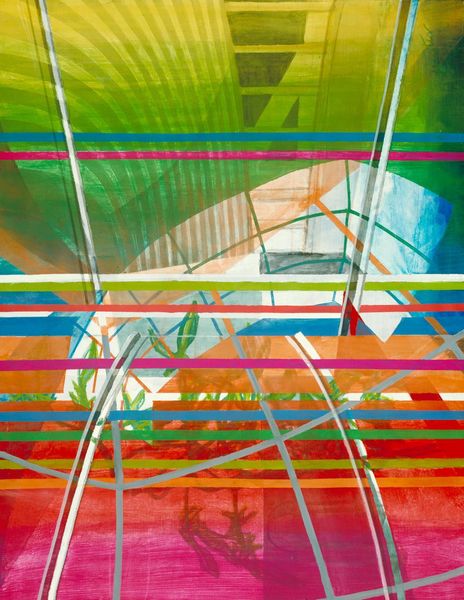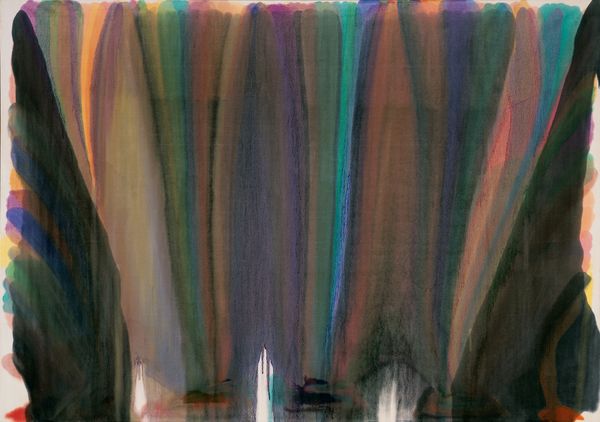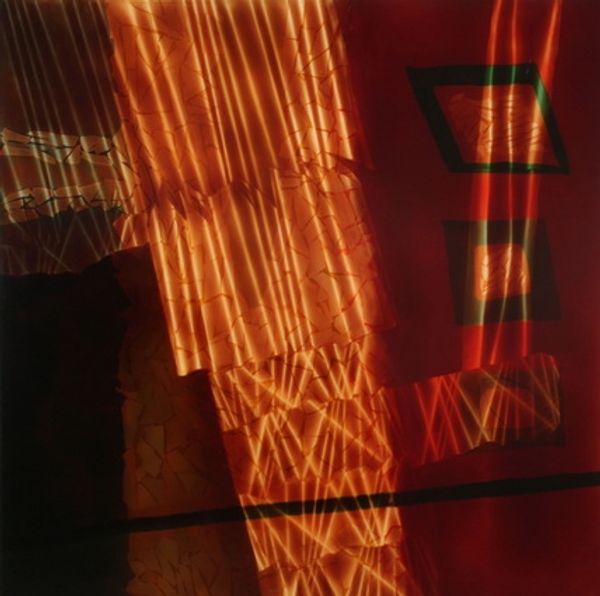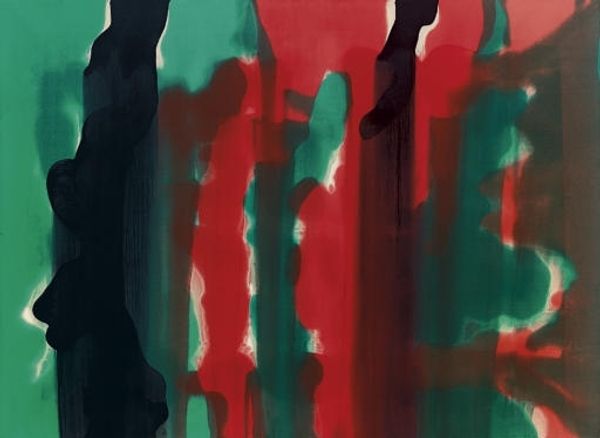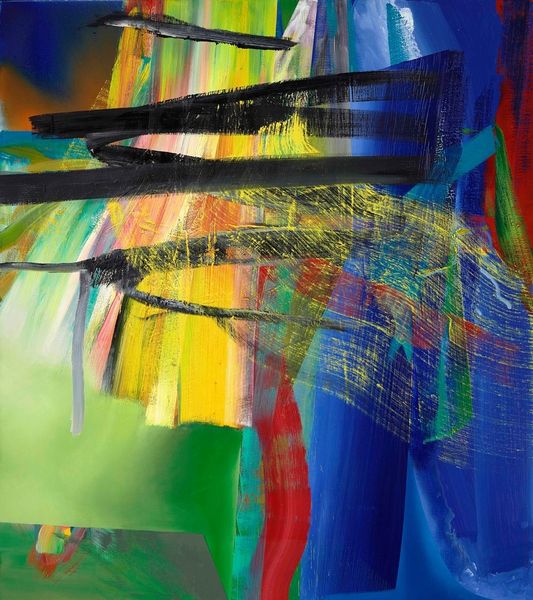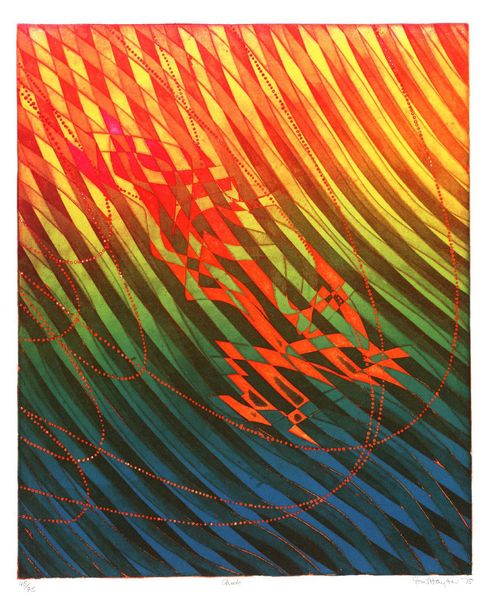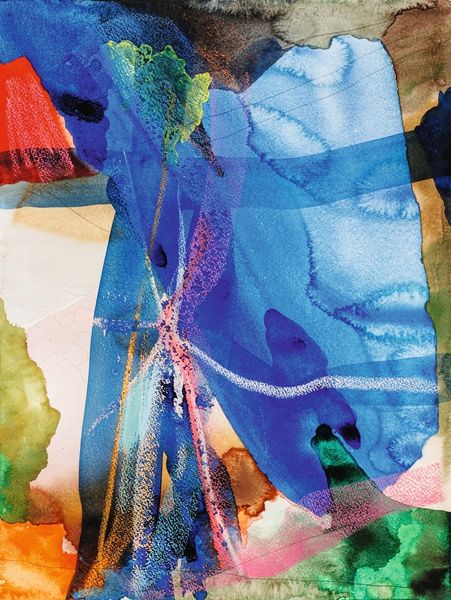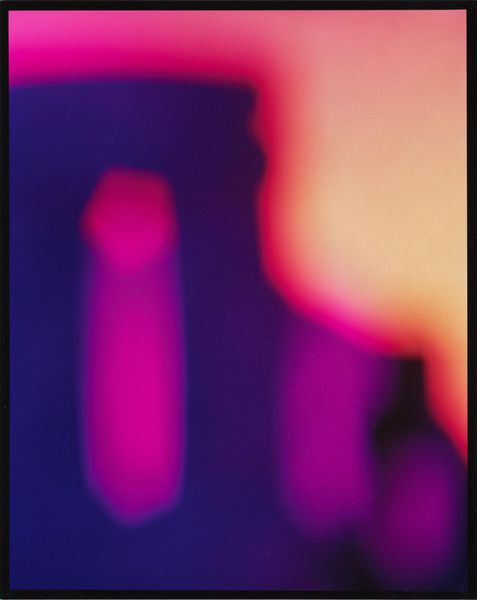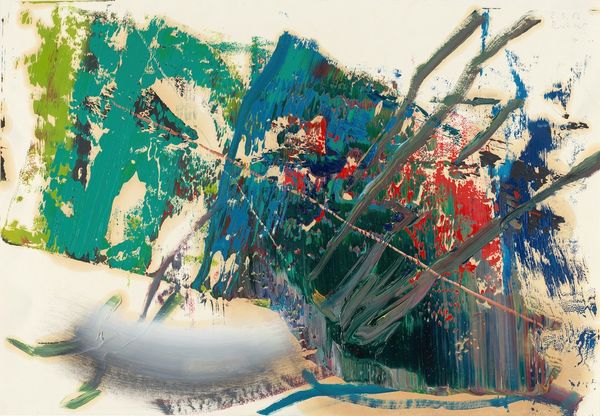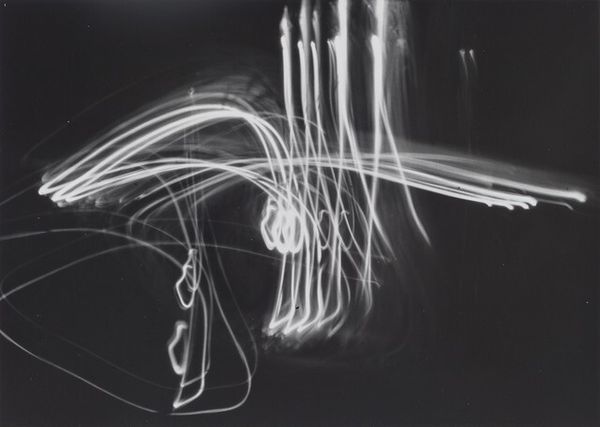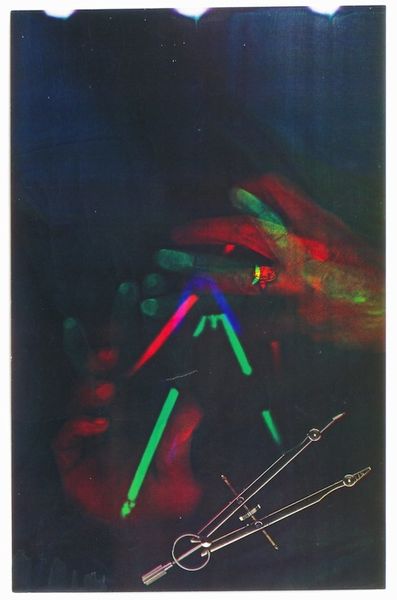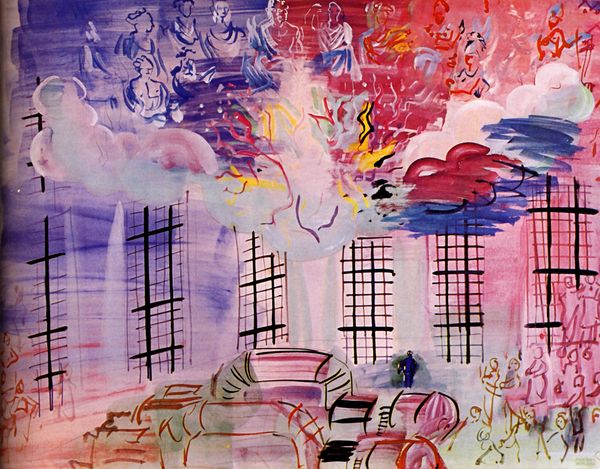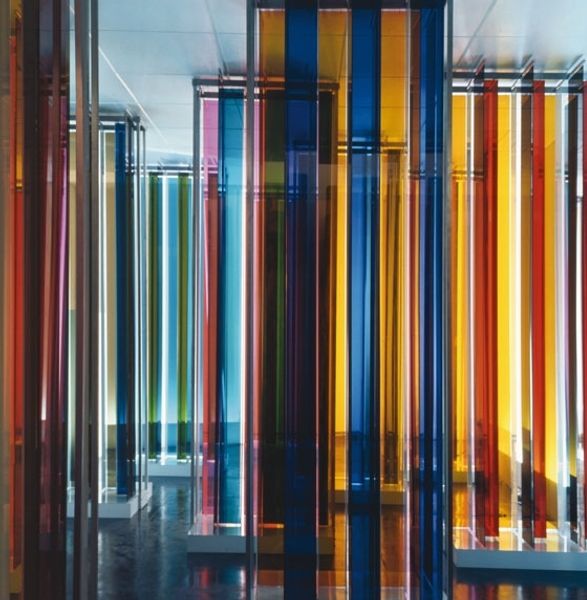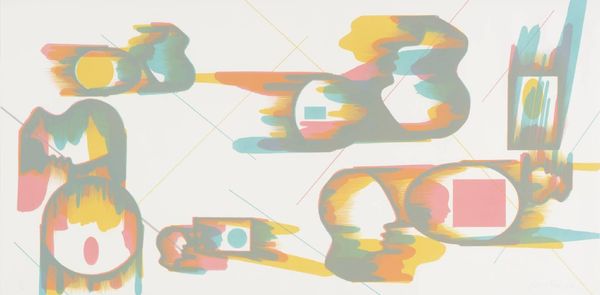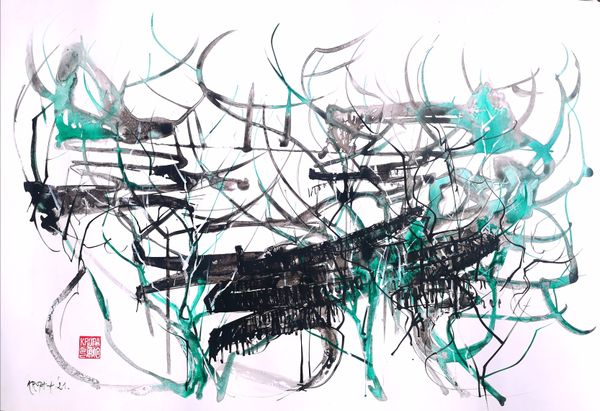
photography
#
abstract-expressionism
#
abstract expressionism
#
street-photography
#
photography
#
cityscape
#
abstract art
Dimensions: overall (image): 18 x 26.7 cm (7 1/16 x 10 1/2 in.) sheet: 27.31 x 36.83 cm (10 3/4 x 14 1/2 in.) mat: 35.56 x 45.72 cm (14 x 18 in.)
Copyright: National Gallery of Art: CC0 1.0
Curator: Right. So, here we have "Detroit," a photograph by Harry Callahan, dating from sometime between 1943 and 1980. Editor: Whew, my first thought? This is the visual equivalent of white noise, but… make it neon. It’s that blurry chaos that somehow coalesces into something recognizable. Curator: Callahan's technique here is certainly striking. The blurred lines, the layering, it creates a dynamic sense of movement. If we unpack this a bit, what do you think he might be suggesting? Editor: I reckon he's capturing that elusive vibe of city life – always buzzing, never still. I feel like I’m trying to remember a night out; the bits I recall, and all the hazy stuff around the edges that sort of blends into the atmosphere. The title *Detroit* kind of hits the mark there too, what was this city known for but the frenetic, fast, high life that was often so gritty! Curator: Interesting, I hadn’t really considered the grit, but you are spot on that Callahan manipulates light and focus to achieve this painterly effect, abstracting urban space. Think of it less like photo-journalism and more as a commentary on the photographic medium itself. Editor: See, that takes me right out of it! Suddenly I feel like I need my spectacles, like I'm supposed to be ‘getting’ something terribly clever and subtle, when I was just bopping along with the bright, jazzy colors. Curator: But isn't that tension essential to engaging with any artwork, or indeed the city? The colors, as you point out, pull us in, the abstract, deconstructed form invites us to question what we see. Editor: Well, it might give me a headache if I stare at it for too long. Give me something more defined to get lost in. Curator: I respect that; maybe it’s that friction that makes this abstract exploration so fascinating. Callahan seems to capture not just a place, but also how our minds perceive and reconstruct it. Editor: Reconstruct maybe even misconstrue, like all my memories... So, even when it gets frustrating, maybe it just echoes our own ways of seeing, too.
Comments
No comments
Be the first to comment and join the conversation on the ultimate creative platform.
